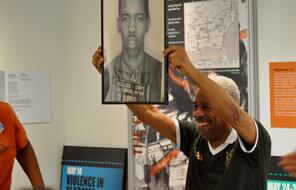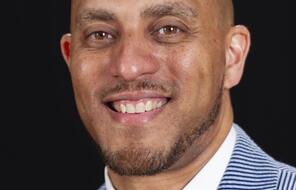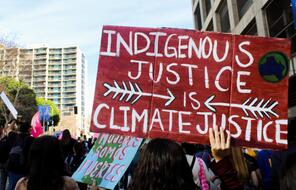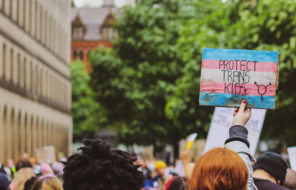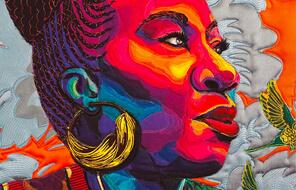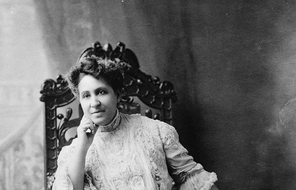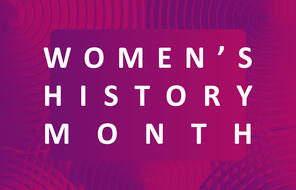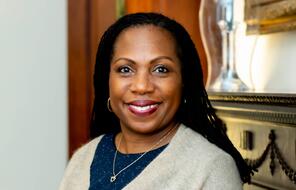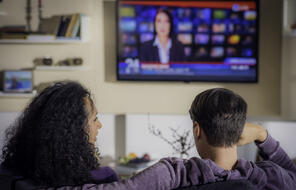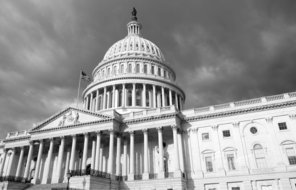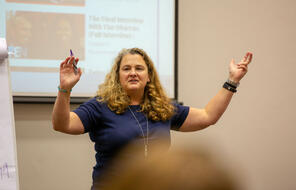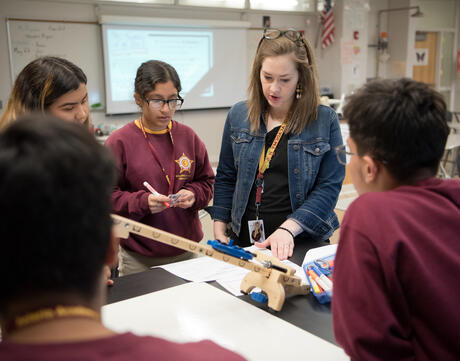
Educators Have the Power to Strengthen Democracy
With a US national election unfolding in the midst of rapidly increasing political polarization, 2024 will be an important year to reflect on the health of our democracy and invest in civic education. All educators can play a vital role in helping young people understand democratic values, learn how democracy functions, and also consider ways to participate in community and society.
Facing History resources can help teachers use the lessons of history and human experience as a way to illustrate Judge William Hastie’s notion that democracy is “a process, not a static condition… easily lost, but never fully won. Its essence is eternal struggle.” It’s also important for students to understand that while democracy is a form of government through which citizens govern and representatives are elected, it also lives in our everyday lives. Astra Taylor describes democracy as “other institutions and structures (workplaces, prisons, schools, hospitals, the environment, and the economy itself) that shape people’s lives… To be substantive and strong, democracy can not be something that happens only in capitol buildings; self-rule has to be far more widespread.”
Unfortunately, beliefs about the importance of democracy and trust in the government are at an all time low. In fact, a recent poll by PRRI found that a majority of Americans across party lines believe democracy is at risk. The poll also showed that there is increased pessimism about the state of the country and growing support for authoritarianism and political violence.
Despite these distressing trends, there was agreement in the same poll when it came to the critical role of educators in helping young people understand lessons from history in order to navigate our world today. In fact, 94% of respondents said that “we should teach our children both the good and bad aspects of our history so that they can learn from the past.” These views were consistent across party affiliation, religious affiliation, generation, race, education, gender, region, or whether Americans live in rural, suburban, or urban areas. In addition, 75% agreed that “public school teachers and librarians are professionals whom we should trust to provide our kids with appropriate curriculum and books that teach the good and bad of American history.”
These many troubling signs about the health of our democracy underscore the imperative of helping young people to build an understanding of our history, understand the forces that strengthen or weaken democracy, and make connections from history to issues in the present.
Young people need opportunities to analyze the strength and fragility of our democracy as it exists in multiple institutions, as well as reflect upon the ways we can foster democratic ideals in our own communities. Schools are often the first democratic space that young people encounter, and by engaging them in civic education, students can develop the civic knowledge, skills, and dispositions needed to participate in democratic life.
Facing History believes that civic education is an important avenue to develop community members who ethically and actively participate in society and who possess the following:
- tolerance, empathy, and respect for human dignity
- the skills to seek truth and communicate across difference
- a capacity for ethical reflection
- a sense of the common good rooted in equity and justice
- a belief that they can make a difference
- a habit of engagement
- an understanding that each person’s choices matter
In the year ahead, consider the ways in which you and your students can reflect on what democracy is, what it could be, and what role we can each play in our democracy. Here are five resources that can help you and your students grapple with the meaning of democracy itself, the health of our democracy, link lessons of history to today, and reflect upon the ideals of democracy that we must continually strive toward.
- Defining Democracy
In this lesson, students brainstorm different definitions of democracy and consider democracy's relationship to their own communities and cultures. - In Pursuit of Democracy & Freedom
This C3-style inquiry introduces students to the ideals of democracy and freedom through the use of students’ lived experiences as well as examples of those who have used democratic tools to fight for their freedoms. - Democracy and Current Events
This toolkit provides lessons and strategies for helping your students make sense of issues in the news related to democracy. - Responding to Difference in Democracy
In this lesson, students explore the varied ways people respond to differences by reading and reflecting on a poem. - Democracy and Freedom: US History Capstone Project
This capstone project invites students to reflect on their own role in a democracy in light of what they’ve learned about freedom and democracy in US history.

